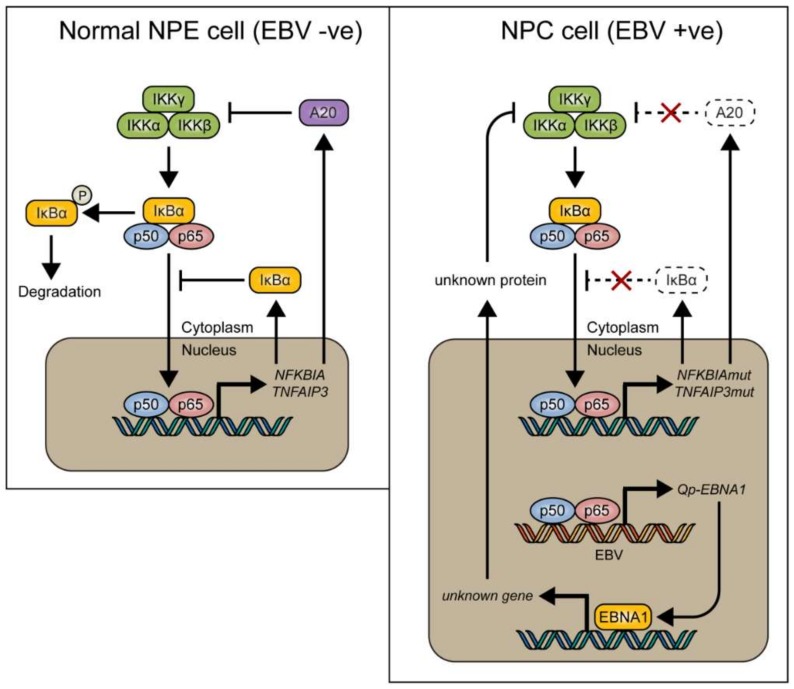Figure 5.
Model showing how NF-κB signaling is tightly regulated by inhibitory proteins such as IκBα and A20 (encoded by the TNFAIP3 gene) in normal nasopharyngeal epithelial cells (left), and how these proteins can be mutated in nasopharyngeal carcinoma (NPC) (right), resulting in loss of control of NF-κB signaling. We found that EBV-encoded Qp-EBNA1 can be upregulated by NF-κB, while EBNA1 protein expression has been shown to negatively regulate NF-κB activation by inhibiting IKKα/β phosphorylation [20]. The regulatory loop between NF-κB signaling and EBNA1 implies an important role for EBV in the control of NF-κB activity in the presence of mutated genes like NFKBIA and TNFAIP3 in NPC.

